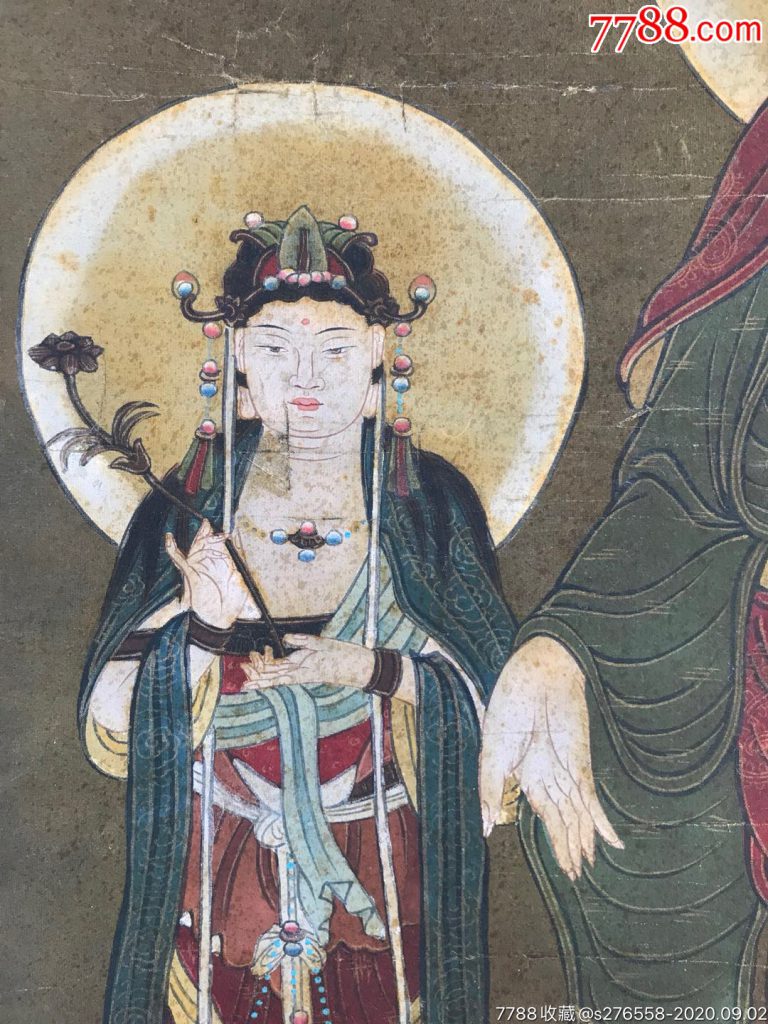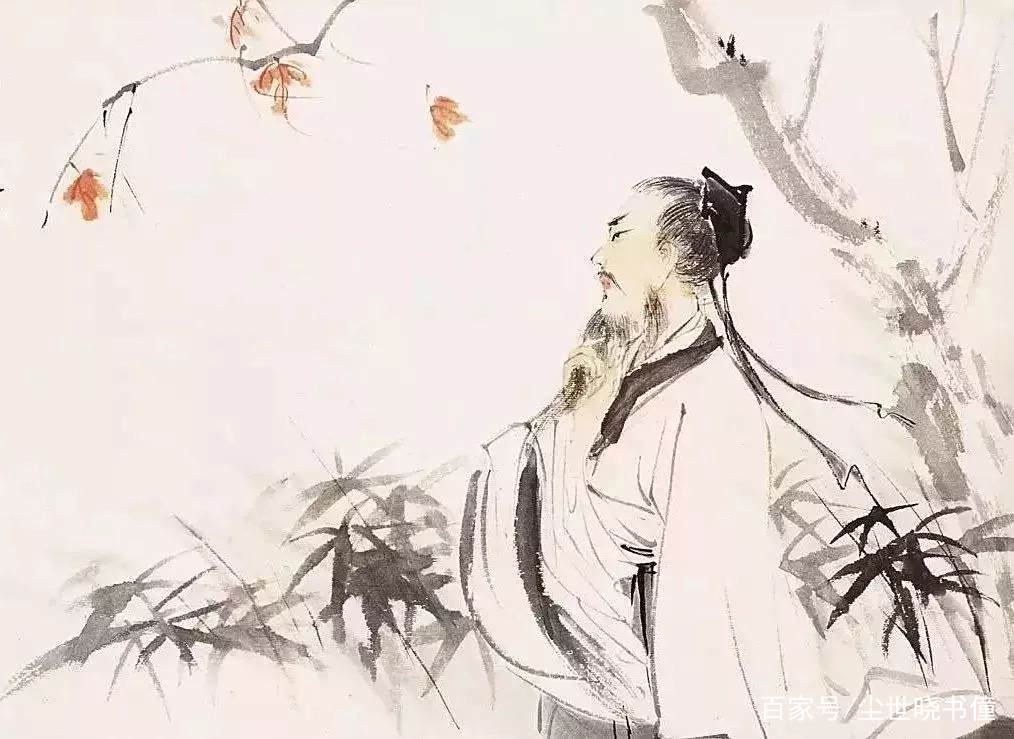Pi Rixiu, also known as Xi Mei and Yi Shao, was a poet and literary figure of the late Tang Dynasty. He once lived in Lumen Mountain, Xiangyang for a period of time and was known as Lumenzi. His poems mostly reflect the social reality of that time, and are on par with Lu Guimeng, known as “Pilu” in the world. Let’s take a look at the story of Pi Rixiu brought by the history encyclopedia editor.

Pi Rixiu has been very intelligent since childhood, with outstanding performances in poetry, prose, and ci poetry, so he became very famous in his twenties.
In the seventh year of Xiantong reign of Emperor Yizong of Tang Dynasty (866 AD), Pi Rixiu went to Beijing to participate in the imperial examination, but did not pass. Pi Rixiu, who was 32 years old at the time, was recommended by the state officials to participate in the imperial examination in Chang’an, the capital city. Pi Rixiu’s poetry and prose are very outstanding, so he only stayed in Chang’an for about ten days and his literary name spread throughout the city. But he is a decent person and does not flatter others. Those high-ranking officials and nobles do not like him, and no one recommends him, so he failed the exam. Pi Rixiu had no choice but to leave the capital city in despair. He retreated to Shouzhou (now Shouxian County, Anhui Province) and compiled a collection of his poems and writings called ‘Pi Wenshu’.
In the eighth year of the Xiantong reign (867 AD), he regrouped and participated in the imperial examination again, finally achieving the rank of jinshi. In this exam, Pi Rixiu was admitted last, not because his poetry and prose were inferior to others, but because he was ugly.

According to Sun Guangxian’s “Beimeng Shuyan”, the chief examiner this time was Zheng Yu, a minister of the Ministry of Rites. He was originally quite fond of Pi Rixiu’s poetry and prose, so before the list was released, he sent someone to invite Pi Rixiu to his own yamen. He thought that someone with outstanding poetry and prose should also have clear eyebrows and beautiful eyes. Unexpectedly, upon seeing it, I was greatly disappointed: Pi Rixiu’s left eye corner collapsed, and from a distance, it looked like there was only one eye. As soon as they met, Zheng Yu said something like this: “A child’s talent and learning are very rich, like a single eye.” This means that your talent and learning are very good, but unfortunately you only have one eye! Pi Rixiu was very disgusted with Zheng Yu’s judgment of people based on their appearance, so he replied, “The attendant must not lose sight of two people with one eye.” This means that the attendant must not let my one eye cause the person who originally had two eyes to lose their eyesight! As a result, this sentence made Zheng Yu very unhappy and lowered Pi Rixiu from a higher ranking to the last place.
Although he passed the imperial examination, Pi Rixiu’s emotions were still very complicated. He wrote a poem called “After ascending the throne, there was a banquet in the apricot orchard, and because of the record sent to Song Chuwen in the same year,” which was full of self inflicted poverty and bitterness in the excitement of becoming a successful candidate
Rain washes the Qingming Festival, and all things are fresh. The whole city is filled with red feasts of carriages and horses.
Although En Rong has to accompany Gao Hui, he is only worried about violating the imperial examination.
When drunk and unaware of the day of the fire, poverty is like watching a flower year.
I was afraid of being laughed at by Qing’e, so I didn’t pay for the banquet with Chunfeng.
Afterwards, Pi Rixiu worked as a county magistrate under the governor of Suzhou, Cui Pumu. Later, he entered the capital and held positions such as Zuo Lang and Tai Chang Doctor. In the second year of Qianfu (875), he was appointed as the deputy envoy of Piling.
Pi Rixiu intended to ‘benefit the world’, but by this time, the Tang Dynasty was already declining, the court was corrupt, and soldiers and bandits were rampant. His passion had nowhere to be unleashed. In the “Biography of Tang Dynasty Scholars,” it is recorded that “at the end of the year, tigers and wolves indulged, and the people were at a loss. Everything they did was a chaotic way.” Pi Rixiu then wrote the “Hidden Book of Lu Men” in sixty chapters, which mostly ridiculed corrupt policies. “Pi Rixiu’s grief and anger can only be written in poetry and prose. He said,” Even in ancient times, killing people made people angry, and even in today’s times, killing people makes people laugh. “” “Even in ancient times, officials were appointed to drive away thieves, and even in today’s times, officials are appointed as thieves
Later, the Huangchao Uprising broke out, and some people said he joined the rebel army. There have always been different opinions about his final outcome.
Works such as Sun Guangxian’s “Beimeng Shuyan”, Qian Yi’s “Nanbu Xinshu”, and Xin Wenfang’s “Biography of Tang Talented Scholars” all claim that Pi Rixiu was killed by Huang Chao. Lu You stated in his “Notes on the Old Learning Temple” that he was killed by the Tang Dynasty after Huang Chao’s defeat. Some people also say that he later came to Zhejiang to rely on Qian Liu (Yin Zhu’s “Epitaph of Pi Liang, the Chief of Dali Temple”, Tao Yue’s “Supplement to the History of the Five Dynasties”), and it is said that he lived in the rivers and lakes, died in Suzhou, and was buried on the north bank of Suixi River (Suzhou Chronicle).
The most widely circulated belief is that during his time in the Huang Chao Uprising, Huang Chao suspected him of writing poems mocking him and killed him. In works such as “The Biography of Tang Talented Scholars”, it is recorded that:
In December of the first year of Guangming reign of Emperor Xizong (880 AD), Huang Chao led his troops to attack Chang’an. The Tang Dynasty emperor fled hastily, and Huang Chao proclaimed himself emperor with the support of his generals. He appointed Pi Rixiu as a Hanlin scholar. In order to gain the support of the people, Huang Chao hoped for a prophecy to appear claiming that he was appointed by heaven to dominate the world. He greatly appreciated Pi Rixiu’s literary talent and asked him to write this prophecy. Pi Rixiu accepted the task and wrote this five character ancient poem:
To know the surname of a sage, Tian 8-21.
To know the name of a saint, one must follow the law of the first three bends.
This is a poetic mystery written according to Huang Chao’s name. Tian Ba21 “means yellow character; The Three Bend Law of Fruit Head


